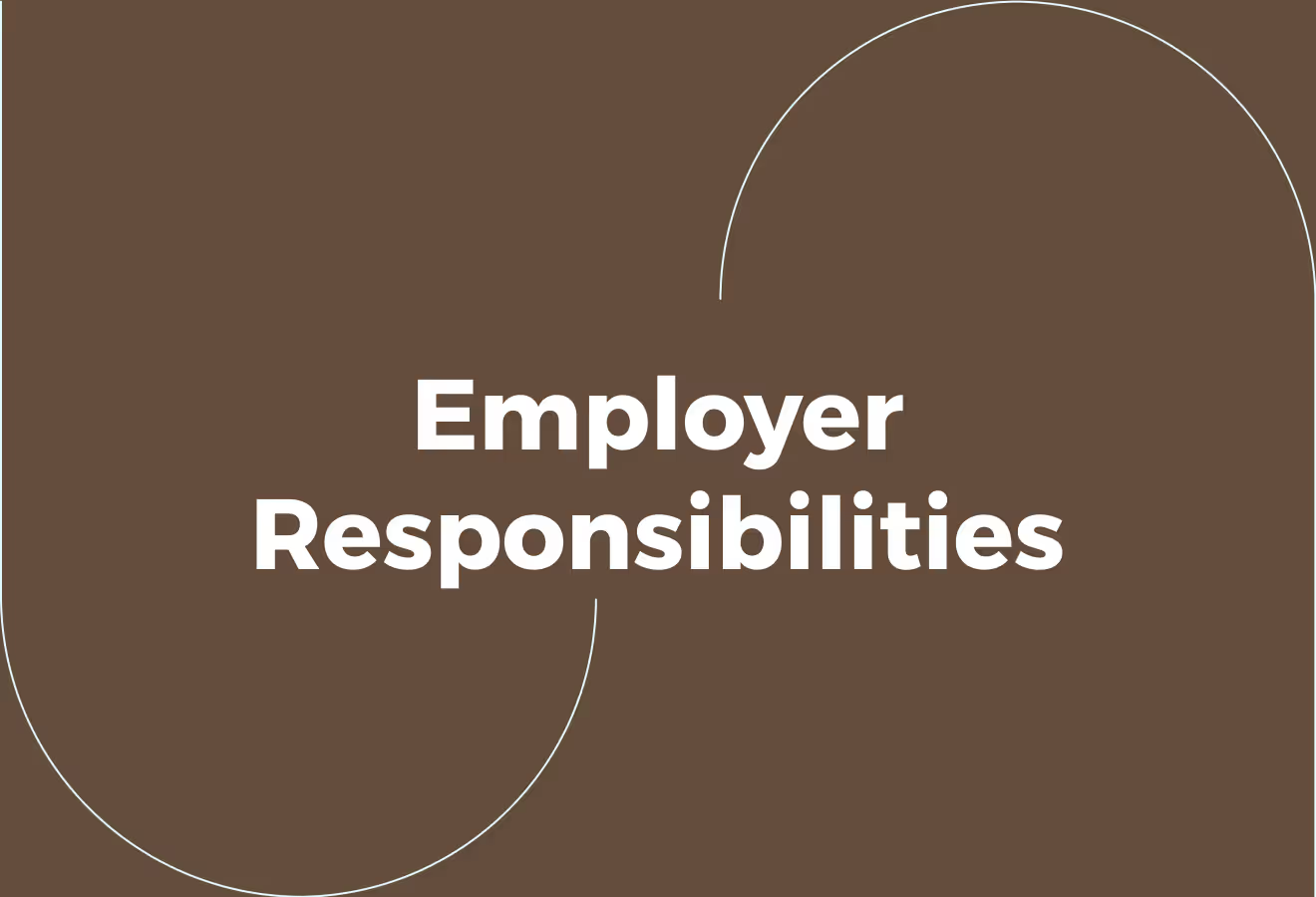End Of Service Benefits According To Saudi Labour Law
.avif)
End Of Service Benefits According To Saudi Labour Law
Understanding the ins and outs of Saudi labour law is crucial for any organisation operating in the Kingdom. For instance, if an employee resigns or their contract ends, the organisation needs to be ready to process their end-of-service benefits and clear them with the GOSI.
How to get a GOSI certificate? Read on to learn about end-of-service benefits for employees according to Saudi labour law and how Cercli's global HR system can help you make sense of it all.
What are End of Service Benefits (EOSB)? Saudi Labour Law in Focus

End-of-Service Benefits, or EOSB, in Saudi Arabia are severance payments that employees receive upon leaving a job. According to Saudi Arabia’s Labour Law, EOSB applies when an employee leaves a job, regardless of whether it’s by resignation, mutual agreement, or employer termination.
The primary purpose of these payments is to reward employees for their years of service and to provide them with financial security as they transition to new employment. EOSB payments recognise the contributions employees make to their organisations and support them in their career changes.
How Calculations for End of Service Benefits Are Made
Saudi Arabia’s Labour Law outlines how EOSB payments are calculated. The exact severance amount depends on the type of employment contract, the reason for termination, and the employee’s length of service.
EOSB payments are calculated based on the employee’s final wage and the total number of years of service. The law ensures all eligible employees receive these payments according to the established criteria. Employers must properly document EOSB payments and settle them promptly to comply with Saudi labour regulations, as outlined in the official Saudi Labour Law.
Related Reading
Eligibility and Conditions for EOSB in Saudi Labour Law

Under Saudi Labour Law, end-of-service benefits are a statutory entitlement that employees receive upon termination of their employment contract. The amount and eligibility depend on several factors, particularly the length of service and the reason for leaving the job.
What are the Entitlements Based on the Reason for Termination?
When the employer terminates the employment relationship (without cause related to gross misconduct), the employee is entitled to a full EOSB. This applies whether the contract is fixed or indefinite.
Resignation by the Employee
EOSB eligibility in the case of resignation is subject to the duration of service:
- Less than 2 years of service: No EOSB entitlement.
- Between 2 and 5 years of service: Employee is entitled to one-third of the calculated EOSB.
- More than 5 years and less than 10 years: Employee is entitled to two-thirds of the calculated EOSB.
- 10 years or more of service: Employee is entitled to the full EOSB.
What About Special Cases?
Female employees who resign within six months of marriage or within three months of giving birth are entitled to the full EOSB. Force majeure: If the employee leaves work due to circumstances beyond their control, they are entitled to the full EOSB.
What About Dismissal for Gross Misconduct?
Employees terminated due to acts falling under gross misconduct may forfeit their entitlement to EOSB. This is in line with Article 80 of the Labour Law, which outlines conditions under which dismissal without compensation is legally permitted.
How to Calculate End of Service Benefits
.avif)
Calculating end-of-service benefits (EOSB), in Saudi Arabia, is crucial for both employers and employees. Under Saudi Labour Law, EOSB is computed using a clear and structured process, allowing for fair compensation to employees upon the conclusion of their service. The EOSB amount is determined primarily by the length of service and the employee’s final wage.
How to Calculate End of Service Benefits
The standard method for determining EOSB is as follows:
- For the first five years of service: Half a month’s wage is paid for each year completed.
- 5+ years and beyond: One month’s wage is paid for each additional year of service.
Pro-rata calculations are used for partial years of employment. For example, an employee who has worked for seven years would receive the equivalent of 2.5 months’ wage (for the first five years), and 2 months’ salary (for the remaining two years), totalling 4.5 months’ wage as EOSB.
Wage Definition in EOSB Calculations
The term wage, to calculate EOSB, includes the following:
- The basic salary is defined in the employment contract.
- Any fixed allowances or compensation paid regularly, such as risk allowances or incentives related to the nature of the job.
Commissions, percentages, or other variable elements are typically excluded from the EOSB calculation unless their inclusion is mentioned explicitly in the employment agreement.
Accuracy and Timeliness
It is essential for employers to base EOSB calculations on the most recent wage received by the employee and to ensure all entitlements are calculated with care and paid promptly. EOSB is a legal right, and failure to pay it correctly or on time may result in legal and financial consequences.
Official EOSB Calculator
To support accurate calculations, the Saudi Ministry of Human Resources and Social Development provides an online EOSB calculator via its official website. This tool enables employers and employees to estimate entitlements based on input such as length of service, wage, and reason for contract termination.
Cercli: The Ultimate HR Platform for MENA Businesses
Transform your HR operations with Cercli, designed for businesses in the UAE, Saudi Arabia and the broader MENA region. It is the only platform built specifically for MENA businesses that unifies workforce management needs within a single system.
Manage your entire team, whether local or global (Cercli supports payroll in 150+ countries), with our solution that handles multi-currency payroll, leave management, onboarding, and compliance documentation tailored to the unique requirements of the MENA region.
Streamlined HR for MENA Businesses
Eliminate the complexity of using multiple fragmented tools and enjoy the efficiency of a single source of truth that keeps your business fully compliant with local regulations while simplifying every aspect of workforce management.
Whether you're managing a growing team of 25 or coordinating 500+ employees across multiple countries, Cercli provides the localised expertise and streamlined processes that MENA businesses need to scale confidently and manage remote teams effectively.
Experience the only HR platform truly designed for the way you do business in the Middle East. Book a demo to speak with our team about our global HR system today.
Related Reading
Notice Periods and Termination Procedures

In Saudi Arabia, both employers and employees must adhere to clearly defined procedures when terminating employment, which helps protect the rights of both parties.
Notice periods and termination procedures are outlined in Articles 74 to 76 of the Saudi Labour Law. These provisions ensure that both parties, the employer and the employee, are treated fairly, with adequate notice and clarity regarding the end of the employment relationship.
Notice Period Requirements
For fixed-term contracts, Article 74 requires that either party provide prior written notice if they do not intend to renew the contract. This notice period is typically outlined within the employment contract and usually falls between 30 to 60 days before the contract’s expiration.
For indefinite-term contracts, Article 75 specifies that either the employer or the employee may terminate the agreement, provided the termination is for a valid reason and is issued in writing. The minimum notice period is:
- 60 days for employees receiving monthly wages
- 30 days for those receiving wages on a different schedule (e.g., weekly or daily)
Compensation for Failure to Give Notice
If a party fails to observe the required notice period, Article 76 obliges the defaulting party to pay compensation equal to the employee’s wage for the duration of the notice period, unless both parties have agreed to a different arrangement in writing. This protects the non-terminating party from abrupt loss of income or staffing.
Proper Use of Non-Renewal Notices
To comply with legal obligations and maintain transparency, employers should use a structured approach when issuing a notice of non-renewal:
- Include Essential Information: The notice must clearly state the employee’s full name, ID number, contract end date, and the date the notice is issued.
- Specify the Reason (Optional): Although not mandatory, stating the reason for non-renewal, whether performance-based, due to organisational changes, or other factors, adds clarity and context.
- Official Signing and Delivery: The notice should be signed by the employer and handed to the employee in person. It is advisable to request the employee’s signature upon receipt to confirm delivery.
- Retain Copies: Both parties should keep signed copies of the notice for documentation and to help avoid potential disputes.
Understanding and adhering to these procedures helps safeguard the rights of both employers and employees while supporting smooth and compliant workplace transitions.
Employer Responsibilities and Compliance

In Saudi Arabia, employers are required to fulfil several key responsibilities after an employee's service, according to the Saudi Labour Law. These responsibilities are designed to protect the rights of workers and maintain fair employment practices across the private sector.
Timely Payment of Final Wages
When an employment relationship ends, the employer must pay the employee’s final wages and settle all contractual entitlements within one week of the termination date. This includes salary, any accrued leave, and the end-of-service benefit (EOSB) if applicable. If the employee initiates the termination, the employer is given a slightly longer window, no more than two weeks, to settle all outstanding dues.
Dedications from Final Entitlements
Employers are permitted to deduct from the employee’s final entitlements any work-related debts that are due. This might include, for example, advances or outstanding loans that were agreed upon during the employment period. Such deductions must be documented and legally valid to avoid disputes.
Maintaining Compliance and Reputation
Adhering to these settlement timelines and ensuring accuracy in final wage calculations is not only a legal obligation but also a crucial aspect of maintaining compliance and upholding the employer’s reputation with both current and former employees.
Employers are strongly encouraged to maintain detailed payroll records and ensure that all entitlements are accurately calculated by the employment contract and the Saudi Labour Law.
Related Reading
Book a Demo to Speak with Our Team about Our Global HR System
Cercli is your one-stop shop for HR compliance and workforce management in the MENA region. The platform is built to help businesses manage their employees in the region, whether they are local or global.
With Cercli, you can simplify compliance with local labour laws, such as Saudi Arabia’s end-of-service benefits. The HR platform helps you calculate and manage end-of-service benefits, automating the process so you can focus on your business.
Book a demo to speak with our team about our global HR system today.










